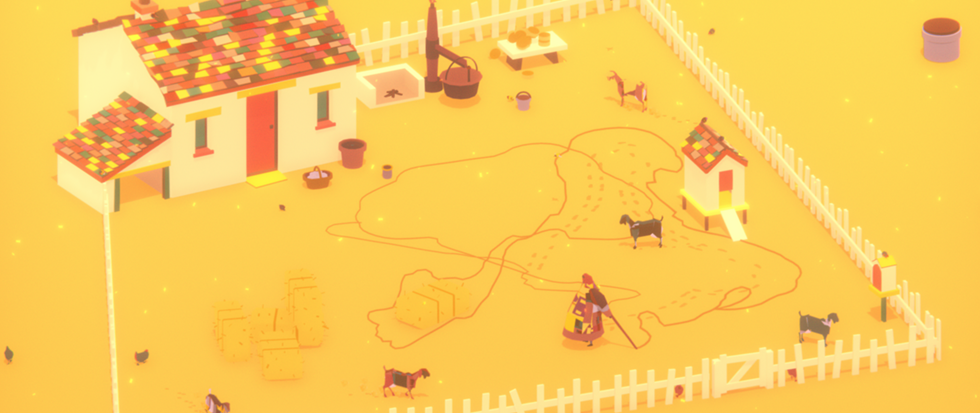
Greak and the Deft Power of Short Stories
Games are rotten with chosen ones. Every year a deluge of epic tales come crashing down, painting players as gods-in-training meant to save the world. It’s a compelling fantasy, and obvious for its lasting appeal, but even its occasional subversion (Ellie’s stolen savior status in The Last of Us for one) can’t help but reiterate a false decree that only rugged individuality can change the world.
Sometimes the world refuses to change, and we have to realize that the stakes are bigger than a single person’s destiny. It takes a kind of courage to tell a more compact story within the context of some larger, world-rending calamity. But even these stories can burst with adventure, meaningful moments, and compelling moments. This is the energy that Greak: Memories of Azur brings to the table, the momentum of epics played out in minutes.
Named for the first of three siblings that the player controls, Greak tells the story of a civilization beyond the brink of war, at the point of retreat. A mystical community is being routed by age-old enemies, and it’s clear this isn’t the kind of thing that a lone hero with a mystical sword is going to solve in a matter of days. Instead we look to a family separated by the chaos and looking to find each other before it’s too late, a smaller story that does more to fill out a complete tale than many others steeped in ancient prophecies and forgotten Macguffins. This game is invested in a grand world made more compelling by the cracks and reflections we spy it through rather than a laborious indexing of historical figures and place names. It’s grandeur outlined but not overplayed.
As Greak, you are traversing a lush animated world of forests, ruins, and fortresses, swinging a special metal sword in two dimensions. Eventually you are overwhelmed and saved by a group of scouts working to protect one of the last bulwarks as everyone prepares to evacuate. This village serves as your hub through the game, causing some light backtracking but not so much as to feel like padding, and even when you have to go back through a previously explored forest there’s a new life to it found in the pouring rain. The world is rich with detail, including the character sprites as Greak rescues his magic-wielding sister Adara and warrior brother Raydel, who all strike out to help their friends and hopefully collect an artifact that will aid their escape and resettlement.
Though animated with craft and some interesting choices made with their written diction, it’s a minor shame that they and the other Courines are yet another entry to the catalog of white blob-face people with dots for eyes. In the lovely cutscenes they’re able to express some emotions and feel warm, but the ubiquity of this character design not only within the world but games at large is wearing thin. Greak succeeds in spite of this.
Part of that success also comes from the tricky but well-executed nature of controlling three characters at once. Greak opts to keep the siblings active and mostly onscreen at most times, rather than defaulting to switching in and out like other games might. This means at times you’re holding a button to share input between them all, and timing jumps around their minor distinctions in handling. You can control them one at a time and this is often necessary, but those you leave behind are still threatened by the goopy plague zombies and bats and whatnot that pop up. There isn’t a frantic back and forth thankfully, just a need to regularly account for everyone’s whereabouts. And given what they’ve gone through to get reunited, I wasn’t keen on keeping them separated for longer than necessary nonetheless. As such it’s a dance, a kind of micro-real time strategy place management, and guessing which character might be best for any given situation while protecting the others.
Greak doesn’t overstay its welcome, and is clearsighted in its goals from the beginning. It’s not up to you to stop the Urlag invasion, merely to hold them back while the civilians build an airship. There are hints and lore and books and collectables and all the other gamer chaff, but it all feels natural and placed to be found in those initial explorations. Ultimately though, the key is to survive and escape, not pull a hail mary to defeat the invading army, and that Greak sticks to this conviction is quite admirable. The tension and pressure is kept on throughout, as every time you return to the village the screws have been turned and the need to escape reestablished.
Through this tightly constructed game, the true cost of war is more firmly illuminated, rather than serving as a backdrop for rote heroism. It’s often more imperative to escape and live rather than to end up as another body on a battlefield.
// Levi Rubeck is a is a critic and poet currently living in the Boston area. Check his links at levirubeck.com




